How cohesion funds are shaping the jobs of the future
Good examples from Croatia, the Czech Republic, and Greece were presented at an international conference in Kyustendil
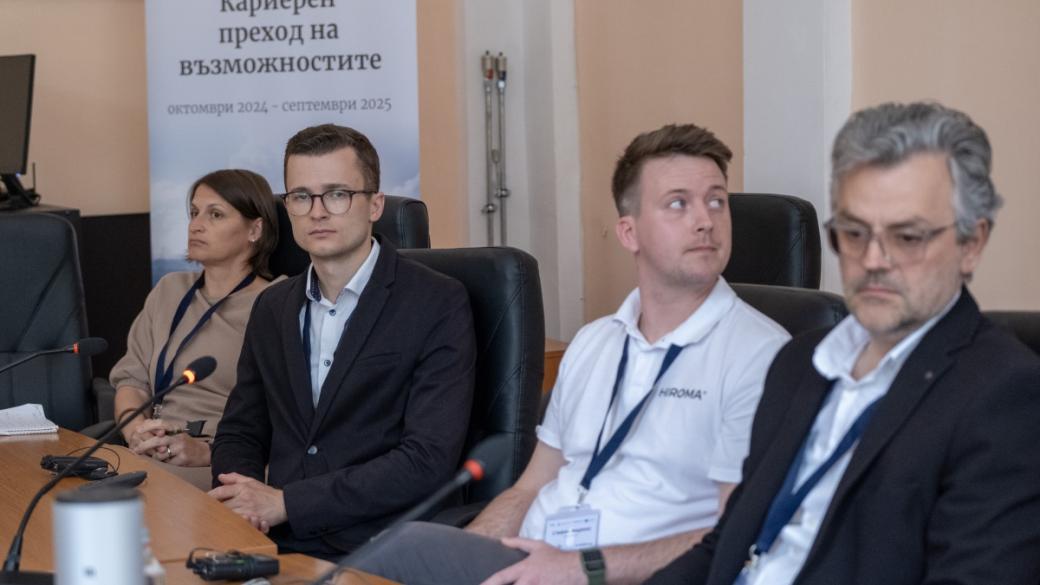
© ECONOMIC.BG / Mirela Vavova
When the conversation about the green transition focuses solely on terabytes, gigafactories, and carbon projects, it is easy to forget that the energy for change comes from people – from their skills, dreams, and fears. This intersection between finance, communities, and talent was the leitmotif of the panel “Money Talks: How Cohesion Funds Create Jobs of the Future in Regions in Transition.”
Representatives of state and local institutions, businesses, and experts from Croatia, the Czech Republic, and Greece took part in the International Conference “Fair Transition in Kyustendil.” The forum, co-funded by the European Union, was organized by Brand Media Bulgaria in partnership with the Municipality of Kyustendil, Elektrohold Bulgaria, and Bobov Dol Thermal Power Plant.
New jobs
Vasil Zhivkov, Program Manager for the European Commission's Directorate-General for Employment, outlined the scale of the challenge ahead.
According to Brussels estimates, the European Green Deal will create around one million new jobs by 2030, but Bulgaria still trains significantly fewer people than the EU average.
Only one in ten workers in energy-intensive industries undergoes retraining, while the EU-wide target is for more than half of the working-age population to participate in training each year. The data for Kyustendil is even more alarming: only 15% of residents surveyed are interested in acquiring new skills, and the region is already losing population and economic activity.
The Just Transition Fund is just the fuel – the real engine is the people," Zhivkov summarized, calling for partnerships between schools, businesses, and local authorities.
Business speaks
Evgenia Nakova, Human Resources Director at Elektrohold Bulgaria, presented just such a model of cooperation.
Her thesis was categorical: “Technology is the noise, people are the music.”
The company, which services the electricity distribution network, is digitizing its processes and looking for hybrid profiles—engineers with IT skills and technicians with software thinking. To create such personnel, Elektrohold has developed ten-year partnerships with vocational high schools in Kyustendil, Bobov Dol, and Dupnitsa and maintains its own training center, which has already trained 14,000 people. The system is based on the idea that no diploma is valid for life, professions change and require flexible, continuous learning.
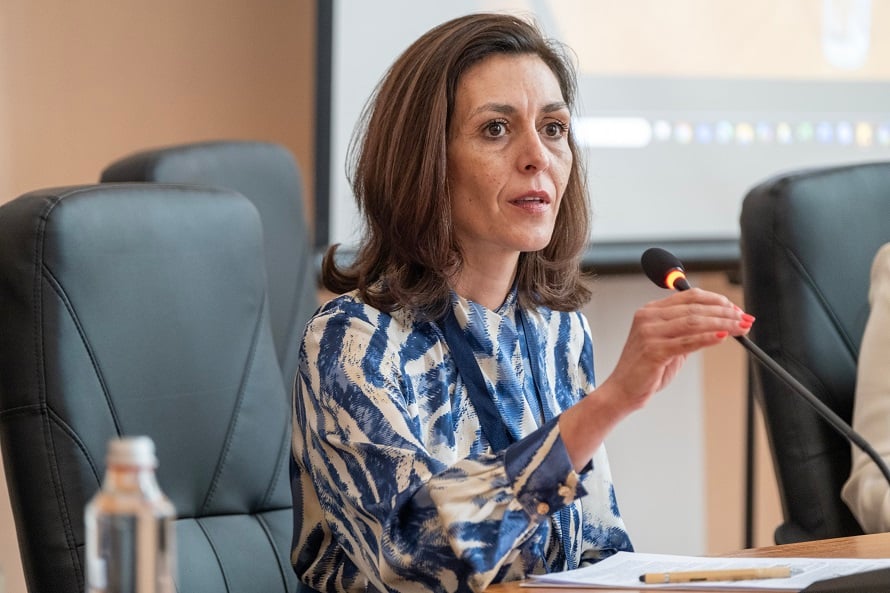
The example from Croatia
At first glance, the Croatian town of Novska, with only 11,000 inhabitants, seems far removed from Bulgaria's coal dilemmas. But Stefan Vedrina from Hiroma Studio showed how a small center can become a hub for high-tech employment.
Over the past five years, Novska has built an educational chain that starts with kindergarten and early English lessons, continues with workshops at school, and ends with state-funded courses for the unemployed. As a result, the region has already trained more than 500 video game developers, created 36 start-ups, and is building a €37 million campus funded by the Just Transition Fund.
We are not just creating jobs, we are bringing life back to the city," said Vedrina, emphasizing that European money makes sense when it is backed by a local vision and persistent education.
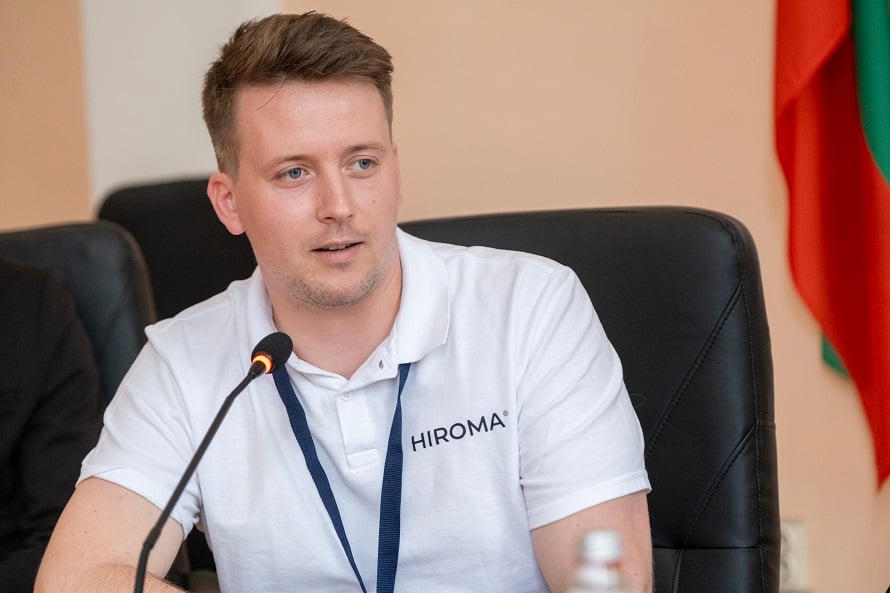
How is the Czech Republic doing it?
The Czech city of Ostrava showed how a coal-mining region can build a comprehensive career guidance ecosystem from first grade to retirement. Anton Housovský, coordinator of the Employment Pact Ostrava, spoke about the program, which connects 42 schools with more than 100 employers.
Students visit companies, teachers have ready-made lessons, and digital games introduce them to real-life choices. In six years, more than 4,000 children have developed personal career plans.
This foundation is being built upon by the “Competencies for the 21st Century” project, presented by Nina Hvastkova.
With support from the Just Transition Fund since 2023, the organization MS PAKT has been researching industrial trends, developing “job maps” for new positions, and offering free counseling for adults.
When a local power plant closes, the team starts preparing two years in advance, helping people retrain for electrical engineering jobs and even providing psychological support. The goal is for at least 10,000 people to receive personalized career assistance by 2027.
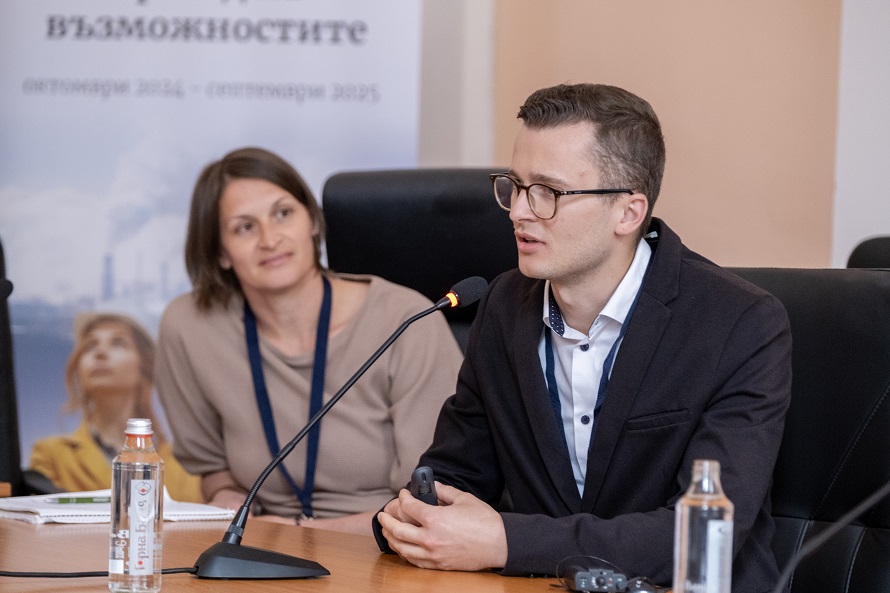
A good example from Greece
Kostas Nikou, executive director of the University of Western Macedonia, described the transition as a matter of survival for a region where unemployment exceeds 27 percent and the closure of coal mines affects more than 16,000 workers.
The university is taking on the role of a social pillar, developing retraining programs, helping start-ups, and building an innovation hub for clean energy with €11 million in European funding. For Nikou, the most important lesson is that decisions must be made with strong local participation, otherwise large sums of money are wasted on administrative delays and lack of coordination.
All these examples show that the green transition will only succeed if it puts people at the center – from the 7-year-old child playing an educational game in Ostrava to the 50-year-old miner in Kozani learning a new profession.
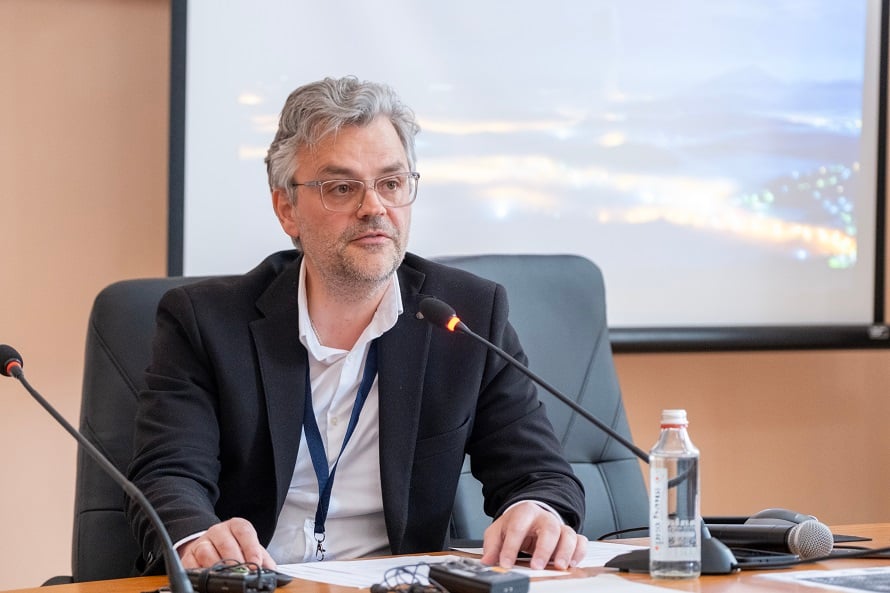
European funds – whether the Just Transition Fund or the European Social Fund – are a powerful catalyst. Where schools, businesses, and local authorities work in coalition, funding gives birth to entire industries, as happened in Novska. Where universities take the lead, as in Kozani, public investment attracts three times more private capital. And where the system supports people throughout their lives, as in Ostrava, young people stay instead of moving to the capital.
Because, as the speakers reminded us, the transition is not just a climate obligation, but a chance for regions to change and retain their most valuable asset: their people.
Co-Funded by the European Union. Views and opinions expressed are however those of the author(s) only and do not necessarily reflect those of the European Union or the Managing Authority. Neither the European Union nor the Managing Authority can be held responsible for them.
Translated with DeepL.


 Gloria Hristova
Gloria Hristova